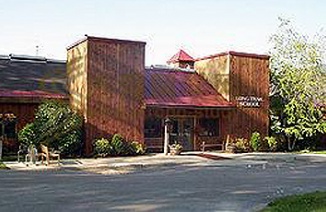睡眠革命
Evolution of sleep
Sleep is very ancient. In the electroencephalographicsense we share it with all the primates and almost allthe other mammals and birds: it may extend back asfar as the reptiles.
There is some evidence that the two types of sleep,dreaming and dreamless, depend on the life-style ofthe animal, and that predators are statistically muchmore likely to dream than prey, which are in turnmuch more likely to experience dreamless sleep. Indream sleep, the animal is powerfully immobilized and remarkably unresponsive to externalstimuli. Dreamless sleep is much shallower, and we have all witnessed cats or dogs cocking theirears to a sound when apparently fast asleep. The fact that deep dream sleep is rare amongpray today seems clearly to be a product of natural selection, and it makes sense that today,when sleep is highly evolved, the stupid animals are less frequently immobilized by deep sleepthan the smart ones. But why should they sleep deeply at all? Why should a state of such deepimmobilization ever have evolved?
Perhaps one useful hint about the original function of sleep is to be found in the fact thatdolphins and whales and aquatic mammals in genera seem to sleep very little. There is, by andlarge, no place to hide in the ocean. Could it be that, rather than increasing an animal’svulnerability, the University of Florida and Ray Meddis of London University have suggestedthis to be the case. It is conceivable that animals who are too stupid to be quite on their owninitiative are, during periods of high risk, immobilized by the implacable arm of sleep. Thepoint seems particularly clear for the young of predatory animals. This is an interesting notionand probably at least partly true.
更多托福备考信息尽在网托福频道!

















